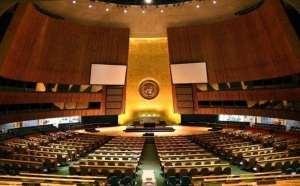The situation in Georgia is explosive. Authorities are pointing fingers at each other, people are protesting in the streets, law enforcement is intervening violently, and more and more people are looking towards Moscow.
The Public Ombudsman of Georgia has accused the Police of applying torture techniques to people arrested during six days of large street protests against the government's decision to suspend negotiations on accession to the European Union. Levan Ioseliani, the Public Ombudsman of Georgia (the equivalent of the People's Advocate) said that he and his officials have encountered people subjected to "the harshest treatment" by the Police: "In most cases, they have suffered serious injuries to the face, eyes and head, which practically excludes even the possibility that the Police have used the necessary and proportionate force against them in each case. The location, nature and extent of the injuries create a credible impression that the police are using violent methods against citizens to punish them. Intentional and severe violence for the purpose of punishment constitutes an act of torture." The United States has previously condemned the use of "excessive force" against protesters. However, Georgian Prime Minister Irakli Kobakhidze has repeatedly praised the police for their response, saying they have shown more professionalism than their counterparts in Europe and the United States. The country of 3.7 million people has been gripped by crisis since last Thursday, when the Georgian Dream party announced it was halting negotiations with the EU and waiving all funding from the bloc until 2028. Georgia was one of the most pro-Western successor states of the former Soviet Union, but critics accuse the government of abandoning that course and moving closer to Russia. The crisis is being closely watched in Moscow, Brussels and Washington. Georgian President Salome Zourabichvili, locked in a standoff with her own government, told Reuters in an interview that Russia, which has already invaded Ukraine, is waging a "hybrid war" against Georgia and other countries such as Moldova and Romania, a NATO and EU member. She called on Western countries on Monday to support what she called a "national movement" in support of Georgia's integration into the European Union, after people took to the streets. The Georgian president has repeatedly invoked the electoral situations in Moldova and Romania to argue that Moscow is interfering in the elections and waging a hybrid war in the region. She and Maia Sandu, the president of the Republic of Moldova, spoke on the phone on Monday, while the Foreign Ministry in Bucharest said Romania stands in solidarity with the Georgian people "in their legitimate struggle for dignity, freedom and a European future." "Before Romania, there was Moldova (saved by its diaspora) and Georgia," the Georgian president wrote on X.
Kremlin spokesman Dmitry Peskov denied that Russia would intervene in the situation in Georgia, which he compared to the 2014 "Maidan" revolution in Ukraine, which overthrew a pro-Russian president. In turn, former Russian President Dmitry Medvedev had warned that Georgia was "moving rapidly along the path of Ukraine, into the dark abyss," predicting that it would end "very badly." Prime Minister Irakli Kobakhidze accused the opposition of "coordinated violence" aimed at overthrowing the constitutional order, ruling out the possibility of talks with the opposition to end the crisis.

























































